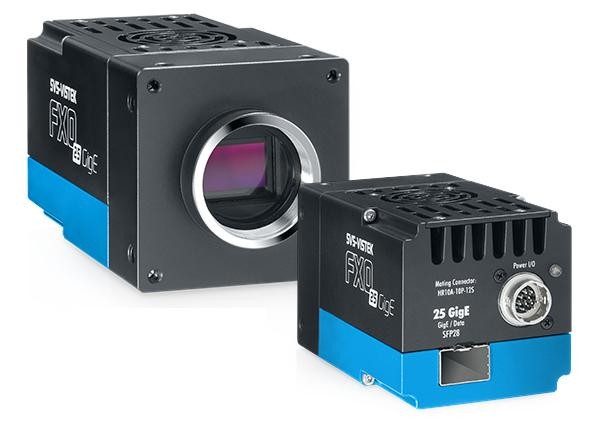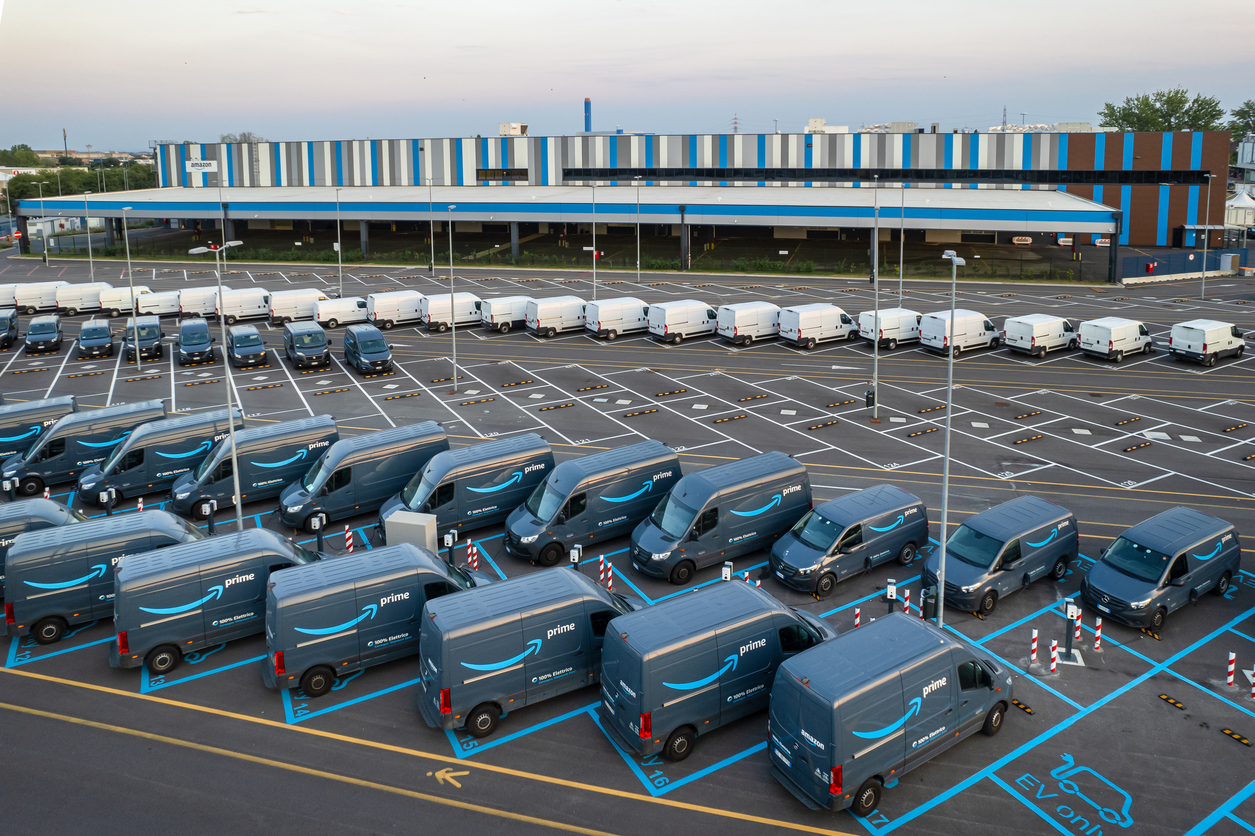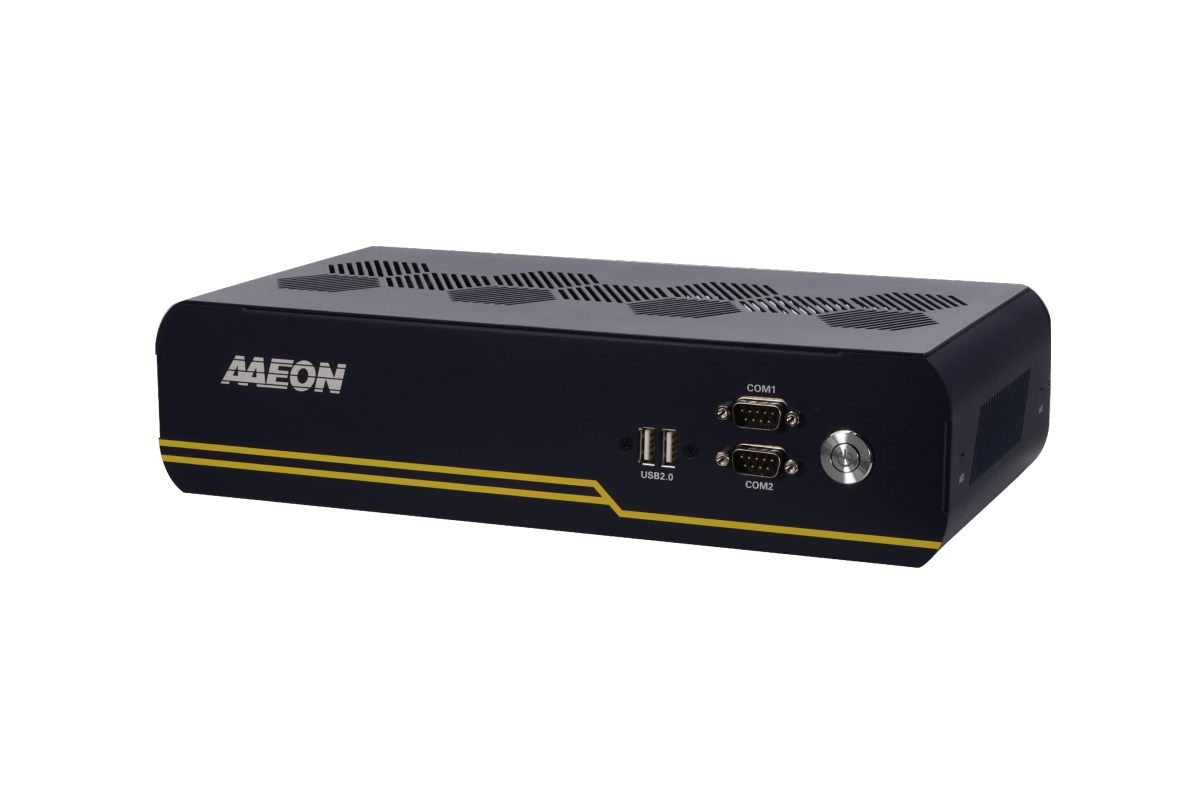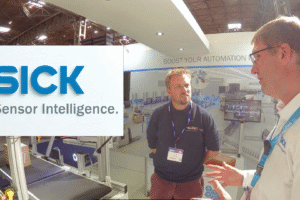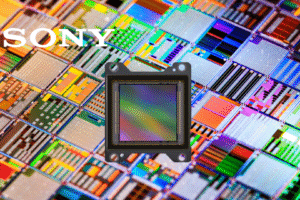Xilinx, Inc has introduced the Versal™ AI Edge series of computer chips, designed to enable AI innovation from the edge to the endpoint. With 4X the AI performance-per-watt versus GPUs[1] and 10X greater compute density versus previous-generation adaptive SoCs, Xilinx calls the Versal AI Edge series the “world’s most scalable and adaptable portfolio for next-generation distributed intelligent systems”.
Versal AI Edge adaptive compute acceleration platforms (ACAPs) deliver intelligence to a wide range of applications including automated driving with the highest levels of functional safety, collaborative robotics, predictive factory and healthcare systems, and multi-mission payloads for the aerospace and defence markets.
The portfolio features AI Engine-ML to deliver 4X machine learning compute compared to the previous AI Engine architecture and integrates new accelerator RAM with an enhanced memory hierarchy for evolving AI algorithms. These architectural innovations deliver up to 4X AI performance-per-watt versus GPUs and lower latency.
AI-enabled automated systems require high compute density that can accelerate whole applications from sensor to AI to real-time control. Versal AI Edge chips can deliver 10X compute density versus Zynq® UltraScale+™ MPSoCs, enabling more intelligent autonomous systems. Additionally, Versal AI Edge devices support multiple safety standards across industrial (IEC 61508), avionics (DO-254/178), and automotive (ISO 26262) markets, where vendors can meet ASIL C random hardware integrity and ASIL D systematic integrity levels.
“Edge computing applications require an architecture that can evolve to address new requirements and scenarios with a blend of flexible compute processing within tight thermal and latency constraints”, said Sumit Shah, senior director, Product Management and Marketing at Xilinx. “The Versal AI Edge series delivers these key attributes for a wide range of applications requiring greater intelligence, making it a critical addition to the Versal portfolio with devices that scale from intelligent edge sensors to CPU accelerators”.
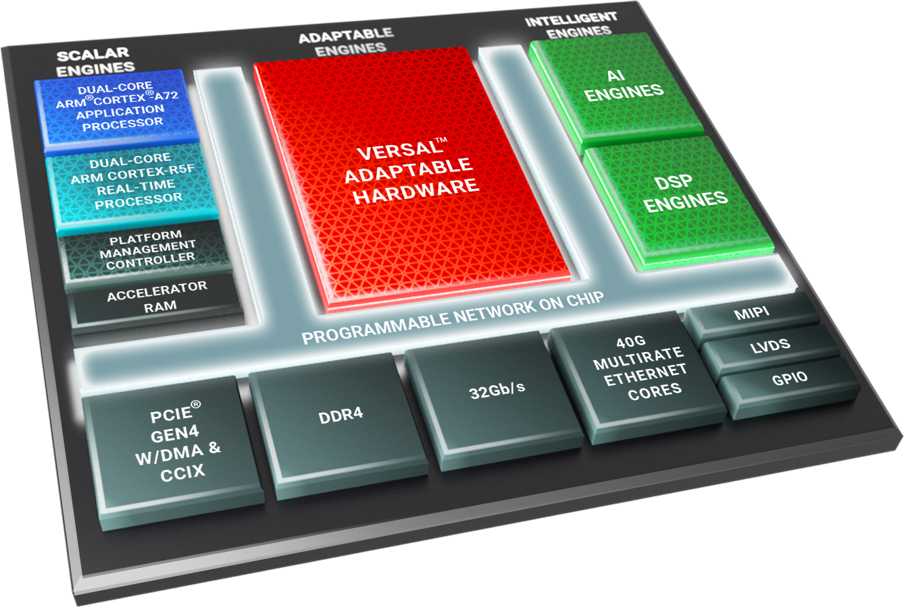
The Versal AI Edge series takes the 7nm Versal architecture and miniaturizes it for AI compute at low latency, with power efficiency as low as six watts and safety and security measures required in edge applications. The Versal AI Edge series further matches the engine to the algorithm, with Scalar Engines for embedded compute, adaptable engines for sensor fusion and hardware adaptability, and intelligent engines for AI inference that scales up to 479 (INT4) TOPS[2] for advanced signal processing workloads for vision, radar, LiDAR, and software-defined radio. The company says this is unmatched by ASSPs and GPUs targeting edge applications.
Connectivity blocks range from LPDDR-4266, 32Gb/s transceivers to meet the necessary protocols in edge applications, as well as features like 40G multirate Ethernet, PCIe® Gen4 with CCIX, and native MIPI support for vision sensors up to eight-megapixel resolution and beyond—critical to Level-2 ADAS and above.
“The market opportunity at the edge is growing exponentially and AI chipsets that serve these unique applications are expected to more than double from 2021 to 2025”, said Dan Mandell, senior analyst, IoT and Embedded Technology at VDC Research. “By creating a design for AI-specific tasks that focuses on performance acceleration while remaining scalable and with low power, Xilinx’s Versal AI Edge series is a compelling solution to address these critical markets”.
Accessible to both hardware and software developers, Xilinx states that the Versal AI Edge ACAPs provide a design-entry point for any developer, including Vivado® design tools for hardware developers, the Vitis™ unified software platform for software developers, Vitis AI for data scientists, and domain-specific operating systems, frameworks, and acceleration libraries for the platform’s target applications.
The Versal AI Edge series design documentation and support are available to early access customers, with shipments expected during the first half of 2022, which will include a roadmap for automotive- and defence-grade devices.
You can find more information about Xilinx’s Versal AI Edge series on its website.
Stay up to date with the most recent automation, machine vision, and robotics news on MVPro. Read the best stories every Friday with our newsletter.
[1] Jetson AGX Xavier, ResNet50 224×224, batch=1, https://developer.nvidia.com/embedded/jetson-agx-xavier-dl-inference-benchmarks
[2] INT4 TOPS performance excludes sparsity, which can improve compute by up to 2X



